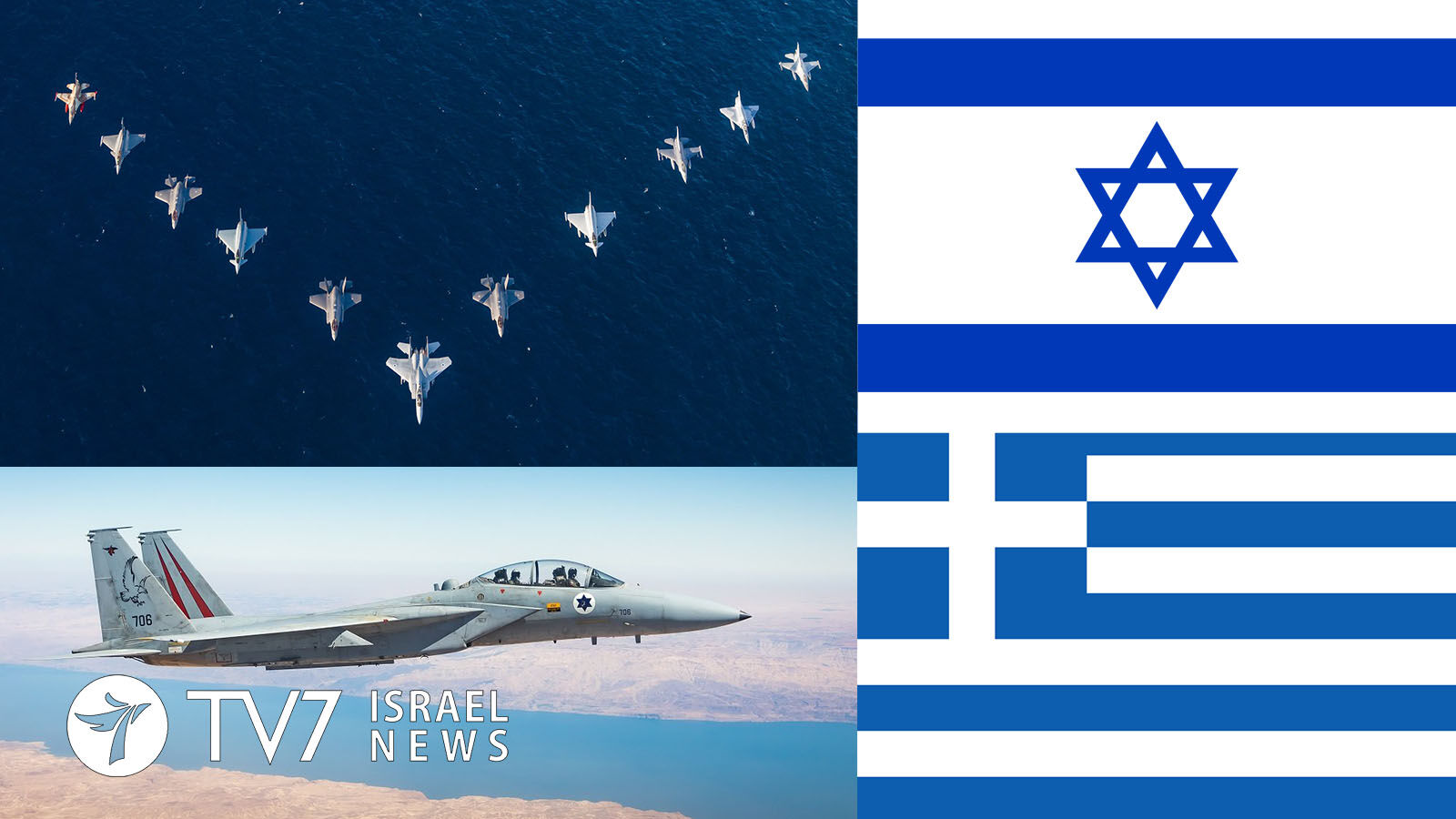Israeli Defense Minister Benny Gantz hosted his Greek counterpart Nikolaos Panagiotopoulos in Tel Aviv today.
By Jonathan Hessen and Erin Viner
After a welcome ceremony with an honor guard at the Israeli Ministry of Defense (IMoD) headquarters, the two leaders livestreamed a joint press statement.
Minister Gantz highlighted the unique relations between Athens and Jerusalem, which contributes to regional peace, prosperity and stability.
“The bond between our countries is strategic in nature with shared interests and wide defense cooperation. Our bond is also a moral one, the young democracy of Israel sharing values with the ancient democracy of Greece,” he said, emphasizing that, “The State of Israel views Greece as a strong regional partner. As a NATO member, Greece plays a big role in maintaining security and stability in the eastern Mediterranean and beyond. We value both our bilateral defense relations as well as our work in the trilateral framework, together with Cyprus. This relationship is an asset, and I am committed to further deepening and expanding our cooperation, in any scenario and regional developments.”
Greek Defense Minister Panagiotopoulos underscored the unparalleled level of bilateral ties, particularly in the economic and security sectors.
“Greece and Israel have forged a strategic relation based on our strong ties of our friendship and our common vision as we aim to create a stable, secure and prosperous environment in the wider region of the Eastern Med. Our common goal is to expand and deepen the defense cooperation between Greece and Israel which has reached in recent years a level, let me say, of unprecedented development which can be measured in very tangible terms,” said Minister Panagiotopoulos, adding, “The defense ties between Greece and Israel have been strengthened as a result of regularly organized exercises and trainings. We are determined to maintain this ever-increasing momentum by also enriching an already substantial defense industrial cooperation to the mutual benefit of our countries. With new activities and important projects, such as the international flight center in Kalamata, among other projects.”
While Greece’ longtime disputes over maritime and territorial claims in the Eastern Mediterranean Sea with neighboring Turkey have eased as of late, the defense leader noted discussions with his Israeli counterpart focused on strategic deliberation on the Sea as well as real threats to regional stability.
“With Minister Gantz, we have discussed the security situation in the Eastern Med that is a region of great strategic importance with growing prospects and opportunities for stability, growth and prosperity, as you very correctly pointed out, but also with visible challenges and threats to the nations of the region and their allies. The failure to cope with these threats would definitely have the negative impact and consequences on the overall prosperity and stability of the region. Our meeting today provides an excellent opportunity to reaffirm our common commitment and determination to face these challenges in an effective manner,” said Panagiotopoulos.
Jerusalem’s top defense official separately acknowledged that “this is a time of great opportunities, but also of great challenges. I see great potential to expand cooperation with all the new friends in the region over shared interests in energy, innovation and security – but I also see a threat that seeks to destroy the bridges that are being built, a negative force that feeds on chaos” – namely Iran.
“During these critical weeks Iran continues its nuclear program,” warned Minister Gantz, stressing that, “while Iranian officials deliver educated remarks in nice suits in Vienna, their proxies continue their aggressive attacks; and just last week we saw a massive attack on the UAE. Iran’s double dealing must be brought to the negotiating table. Any international effort must address both the nuclear issue as well as the Iranian aggression. Israel and its partners with US leadership will continue to defend itself and support peace and stability in the region.”
